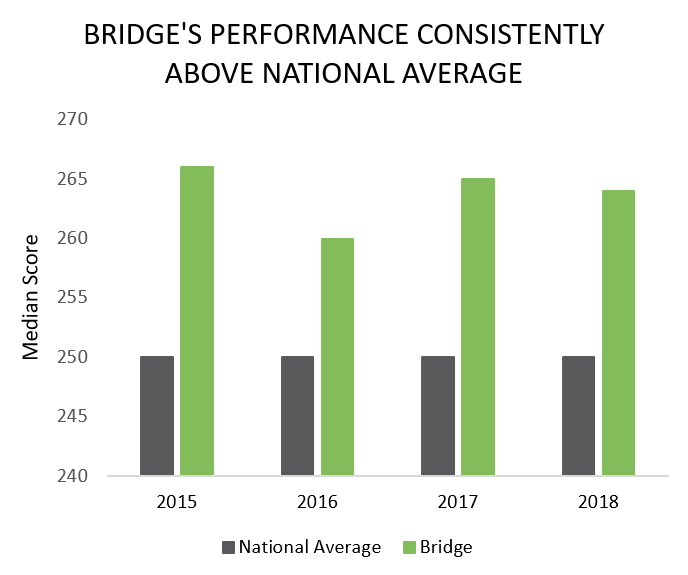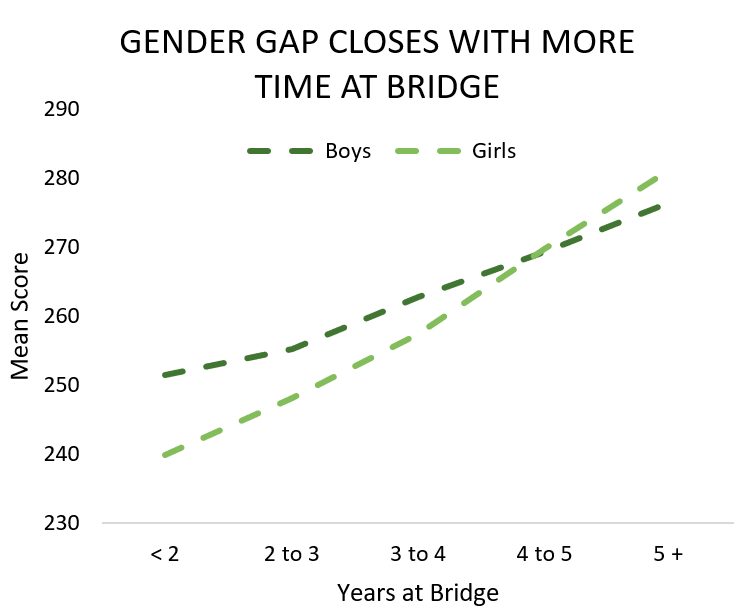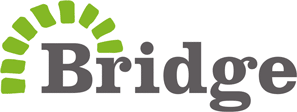Four years of outstanding results for Bridge Kenya graduates
12 December 2018
The widely anticipated 2018 Kenya Certificate of Primary Education (KCPE) results have been released. Over a million children took the exam and for the first time there was no passing or failing. Following sweeping policy changes, all children are now eligible to attend secondary school. The KCPE score simply determines which type of secondary school.
Bridge has much to celebrate. For the fourth consecutive year, Bridge pupils have dramatically outperformed their peers; cementing the trend that Bridge pupils do better. Thousands of Bridge pupils sat the exam and excelled, despite family incomes of about $1.60 per person per day and hailing from communities trapped in the poverty cycle and often plagued by unrest.
Once again, multiple Bridge pupils have been placed in the country’s top 1%, giving them a highly competitive edge for elite national secondary schools admission. Graduates such as Meshack Mutinda from Bridge Gicagi achieved 420 marks becoming an instant community role model.
Bridge pupils scored an average of 12 points higher than pupils nationally, a difference of 0.19 standard deviations, equivalent to almost one full additional year of schooling. 59% of Bridge pupils scored at least 250 marks – with an average of 262 marks – and were 18% more likely to do so than their peers . This is relevant because historically, pupils scoring above 250 marks have attended much better secondary schools than those scoring below 250 marks.

Tens of thousands of Bridge families across Kenya are celebrating because their children are on their way to a better life, thanks to the power of a life changing education.
Convener of the Kenyan Parliament Human Rights and SDG4 caucus and MP for Kibra, The Honorable Ken Okoth, said, “In our country there is a shortage of good quality schools at pre-primary and primary level with high performing teachers. That is why so many families choose to use a non-formal school like Bridge. Everyone, government and parents, want to see children doing well in school, so we need to work together to help organisations like Bridge to grow across Kenya, because they bring to our country more teachers and more classrooms. We must not think of these schools as competition, they are a complement to all other existing schools, helping to bridge the gap between what is needed and what we have in Kenya. The exam results that Bridge has achieved over the last four years confirms in my mind that it is vital Kenya continues to embrace high quality alternative schools like Bridge.”
Kalii Meshack Mutinda from Bridge, Gichagi, who is 13-years-old was extremely happy after hearing his score of 420 marks: “I am so happy, all my hard work has paid off. I have studied hard with the help of my wonderful teachers and now I hope this is an inspiration to all from Gichagi that they too can do well.”
The performance of girls in Bridge schools is particularly impressive. For the fourth consecutive year, girls attending Bridge for five or more years were Bridge’s highest performing sub-group, averaging 281 marks. In the last four years the number of girls attending Bridge schools who have achieved at least 250 marks in the KCPE has increased by 30%. In communities where girls education often faces cultural challenges these outcomes show significant impact.

An excited 13-year-old Victoria Mara Juarez from Bridge, Lamu was ecstatic after finding out she scored 403 marks “My teachers have been understanding and supportive, I am happy I have made them proud with a great score. Now I want all girls in my community to go to school and succeed like me. I used to think the world was Lamu, but now I know there is a world outside and I want to discover it.” Victoria may be from one of the most economically and socially deprived areas of the country but she has one of the best scores in Kenya.
Commenting on the impressive 2018 KCPE results Reuben Wambugu, Bridge International Academies’ Schools Director in Kenya said: “We are delighted by the outstanding results our 2018 candidates have achieved. This is the fourth year in a row that our pupils have outperformed their Kenyan peers and proves that the Bridge approach to learning and teaching works.
“Our results are a testament to the dedication of our teachers and the hard work of our pupils. A school is a community and good results can only be achieved when there are strong and supported teachers who are made accountable to parents and parents who are active and engaged.”
The strong academic results in 2018 continue the trend of evidence that shows how children in Bridge schools consistently do better than those in other schools, despite not being a selective school.
In 2018, almost 27% of Bridge pupils scored more than 300 marks that give a competitive edge in the admissions to great high schools in Kenya. Nationally, less than 23% of pupils achieved such high scores.
ENDS
For more information contact:
Email media@oldbridge.mc-staging2.net
Tel: +44 20 3813 8236
Notes to Editors
Photos and more details of Bridge graduate case studies are available.
The biggest provider of local community – non formal – primary and nursery schools in Kenya is Bridge International Academies.
All analysis from Bridge reflect Class 8 candidates who have been at Bridge for at least one academic year.
The KCPE is the exam all children in Kenya sit at the end of primary school. In previously years, 250 marks was considered a passmark. However, now there are enough places for all children to attend secondary school. The pass mark determines which type of secondary school is available to a pupil. Nationally, all primary school graduates progress into five different tiers of secondary schools:
- Around 68% of graduates will go on to attend day schools
- Around 14% of students will progress to county schools
- Approximately 12% will progress to extra-county schools
- Approximately 3% of graduates will go to elite national schools.
- Approximately 6% of graduates will go to private secondary schools
The KCPE results come on the back of strong learning gains evidenced by Bridge in other African countries. In October 2018, the UK government (DFID) released a report on Bridge schools in Nigeria, showing that attainment in Bridge schools in Lagos was significantly higher than in government schools in Lagos, in both maths and literacy.
About Bridge
Bridge believes every child has the right to high quality education and works in partnership with governments, parents and teachers to ensure access to quality education. Bridge runs, or supports, nurseries and schools and has served a quarter of a million children in low income communities across Africa and Asia.
Bridge is a social enterprise that uses in-depth teacher training and support, advanced lesson plans and wireless technology to provide pupils with a meaningful and life-changing education. Globally, there is an education crisis. Today, the majority of children in the world are not learning the basics, as children are either not in school, or in school and not learning. Bridge is partner in the delivery of SDG4 and is committed to a data driven, evidence based approach that enables a life changing education for all.





